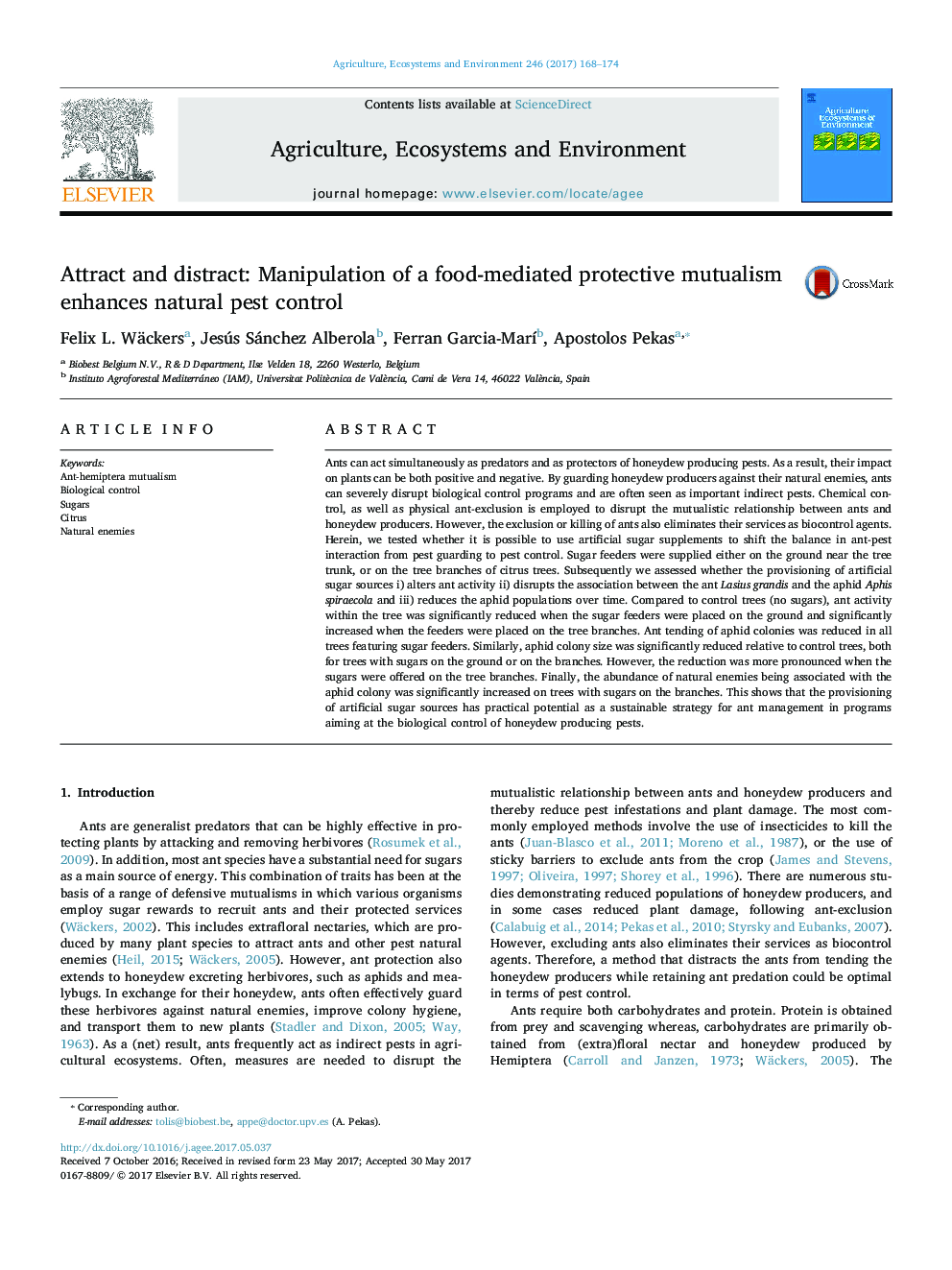| Article ID | Journal | Published Year | Pages | File Type |
|---|---|---|---|---|
| 5538040 | Agriculture, Ecosystems & Environment | 2017 | 7 Pages |
Abstract
Ants can act simultaneously as predators and as protectors of honeydew producing pests. As a result, their impact on plants can be both positive and negative. By guarding honeydew producers against their natural enemies, ants can severely disrupt biological control programs and are often seen as important indirect pests. Chemical control, as well as physical ant-exclusion is employed to disrupt the mutualistic relationship between ants and honeydew producers. However, the exclusion or killing of ants also eliminates their services as biocontrol agents. Herein, we tested whether it is possible to use artificial sugar supplements to shift the balance in ant-pest interaction from pest guarding to pest control. Sugar feeders were supplied either on the ground near the tree trunk, or on the tree branches of citrus trees. Subsequently we assessed whether the provisioning of artificial sugar sources i) alters ant activity ii) disrupts the association between the ant Lasius grandis and the aphid Aphis spiraecola and iii) reduces the aphid populations over time. Compared to control trees (no sugars), ant activity within the tree was significantly reduced when the sugar feeders were placed on the ground and significantly increased when the feeders were placed on the tree branches. Ant tending of aphid colonies was reduced in all trees featuring sugar feeders. Similarly, aphid colony size was significantly reduced relative to control trees, both for trees with sugars on the ground or on the branches. However, the reduction was more pronounced when the sugars were offered on the tree branches. Finally, the abundance of natural enemies being associated with the aphid colony was significantly increased on trees with sugars on the branches. This shows that the provisioning of artificial sugar sources has practical potential as a sustainable strategy for ant management in programs aiming at the biological control of honeydew producing pests.
Related Topics
Life Sciences
Agricultural and Biological Sciences
Agronomy and Crop Science
Authors
Felix L. Wäckers, Jesús Sánchez Alberola, Ferran Garcia-MarÃ, Apostolos Pekas,
